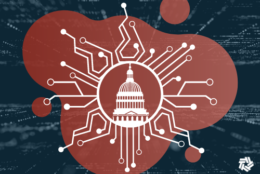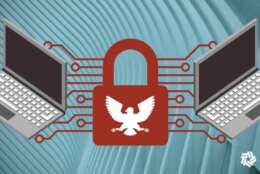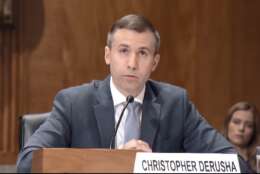Cybersecurity
-
Federal Chief Information Officer Clare Martorana says among her top priorities for 2023 is break down silos, share lessons learned and scale best practices across the IT community.
December 27, 2022 -
As most have heard by now, the Office of Management and Budget recently issued new cybersecurity guidance as a follow-up to the Biden administration’s executive order from May of last year.
December 27, 2022 -
To nobody’s surprise, 2022 was another action-packed year for federal chief information security officers and cybersecurity teams across government.
December 26, 2022 -
The new budget provides expansion and pilot projects for IT and cybersecurity as Defense Department adopts new technology.
December 22, 2022 -
The Cybersecurity and Infrastructure Security Agency is line for another budget boost, while lawmakers are also reauthorizing CISA’s marquee cyber defense program for another year.
December 20, 2022 -
A cyberattack on America’s critical infrastructure could have a dramatic impact on the quality of life we all enjoy in the United States.
December 20, 2022 -
Memory — that part of computers you never seem to have enough of — is a weak spot for cybersecurity. Attackers have exploited memory since, well, just about forever. Now the National Security Agency has published fresh guidance to help both software developers and users avoid memory exploits.
December 20, 2022 -
More of the same. Only more so. That might be the best way to characterize the cybersecurity trends for 2023.
December 20, 2022 -
Chris DeRusha, the federal chief information security officer, said new FISMA metrics will ask agencies for more granular data on how they are meeting administration priorities.
December 20, 2022 -
The latest Federal IT Acquisition Reform Act scorecard showed seven agencies improved their grades since last period and 17 stayed the same with USAID receiving the only “A” grade.
December 15, 2022 -
NASA runs on software, as do many federal agencies. Rockets are what they are known for, sure, but controlling them and interpreting data, even handling human resources and finances all require software. Currently, NASA is in development of over 1,000 software features leveraging agile.
December 14, 2022 -
Thrift Savings Plan participants saw a major TSP update on June 1. Now six months later, the Federal Retirement Thrift Investment Board shared progress, ongoing work and lessons learned.
December 12, 2022 -
As government and critical infrastructure sectors prepare to confront a rapidly evolving threat landscape, coordinating security across organizations has become a critical imperative.
December 12, 2022 -
The administration, prompted by Congress, has banned sales of telecommunications gear from Chinese companies. Now the question is: Should anything come next, when it comes to Chinese products that might have national security implications?
December 09, 2022 -
Ross Foard comes to his position at the Cybersecurity and Infrastructure Security Agency with experience. Lots of it. His long and storied federal career has landed him at CISA as an IT and information security specialist. “It’s probably,” he said, his “most rewarding” position to date.
December 08, 2022











